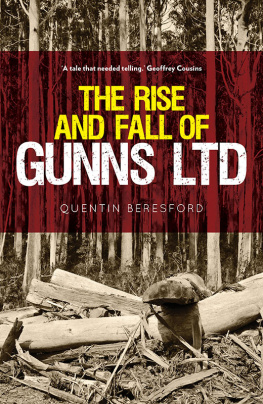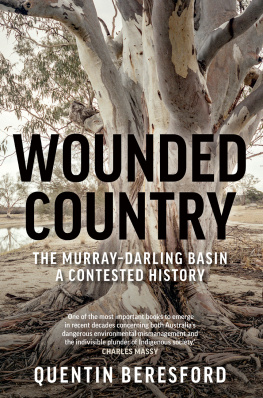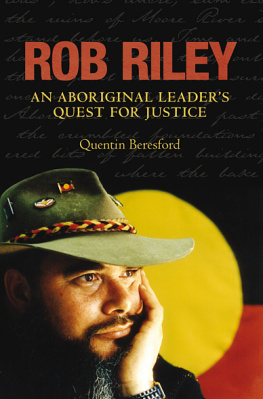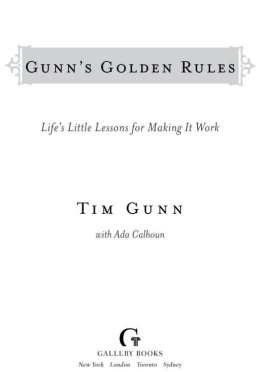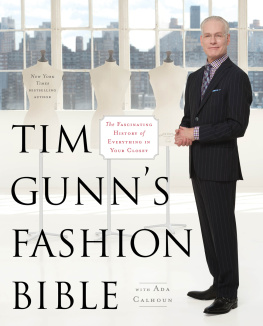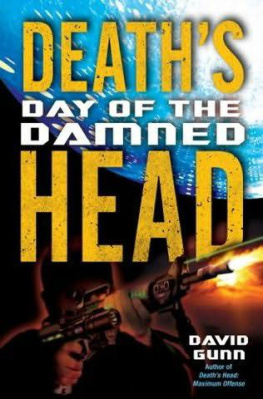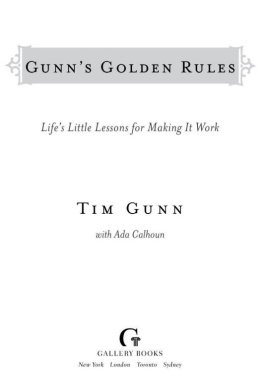THE RISE AND FALL OF GUNNS LTD
QUENTIN BERESFORD is the author or co-author of numerous books on Australian politics and public policy, including the biography Rob Riley: The Life of an Aboriginal Leader, which won three national literary awards. He is also the author of The Godfather: The Life of Brian Burke. Quentin is professor of politics at Edith Cowan University, where he has taught for more than 20 years. Born and educated in Tasmania, he was a journalist on Hobarts The Mercury in the early to mid-1980s, where he wrote extensively on Tasmanian political and environmental issues.
THE RISE
AND FALL OF
GUNNS LTD
Quentin Beresford

A NewSouth book
Published by
NewSouth Publishing
University of New South Wales Press Ltd
University of New South Wales
Sydney NSW 2052
AUSTRALIA
newsouthpublishing.com
Quentin Beresford 2015
First published 2015
This book is copyright. Apart from any fair dealing for the purpose of private study, research, criticism or review, as permitted under the Copyright Act, no part of this book may be reproduced by any process without written permission. Inquiries should be addressed to the publisher.
National Library of Australia Cataloguing-in-Publication entry
Creator: Beresford, Quentin, 1954 author.
Title: The rise and fall of Gunns Ltd / Quentin Beresford.
ISBN: 9781742234199 (paperback)
9781742241937 (ePub/Kindle)
9781742247205 (ePDF)
Notes: Includes bibliographical references and index.
Subjects: Gunns Ltd.
Business enterprises Tasmania.
Forests and forestry Tasmania.
Pulp mills Political aspects Tasmania.
Pulp mills Tasmania.
Dewey Number: 338.76349
Design Di Quick
Cover design Xou Creative
Printer Griffin Press
All reasonable efforts were taken to obtain permission to use copyright material reproduced in this book, but in some cases copyright could not be traced. The author welcomes information in this regard.

This book is printed on paper using fibre supplied from plantation or sustainably managed forests.
Contents
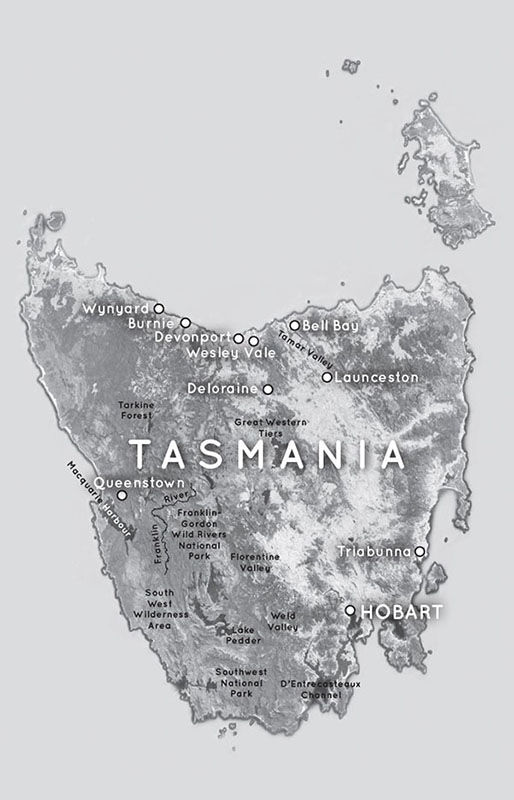
Prologue
In June 2003 Paul Lennon, then Deputy Premier, and John Gay, chief executive officer (CEO) of Gunns Ltd, which had recently emerged as the largest timber company in Australia, met for dinner in an upmarket restaurant on Hobarts historic waterfront. It wasnt unusual that these two powerful men would get together for an informal meal. They were old friends, steeped in Tasmanias bitterly contested forest politics, and lifelong supporters of the states controversial wood-chipping industry, which Gunns was close to monopolising. They had marched side by side at a 1995 pro-logging rally in Launceston. By Lennons own admission, they were politically like-minded.
The dinner has passed into Tasmanian folklore because the two were overheard discussing a new proposal to build a pulp mill in Tasmania. In what amounted to an amazing lack of discretion, the pair were eavesdropped discussing a document on the table entitled Gunns Ltd Mill Proposal.of conflict over Tasmanias prized forests and with the ill-fated Wesley Vale pulp mill project of the late 1980s a barely closed wound for pro-loggers like Lennon and Gay, no other topic in Tasmanian politics was more likely to prick the ears of a casual bystander than this one.
The witness to the occasion, who has never been revealed, quickly tipped off the Greens. State Greens leader Peg Putt raised the power dinner in Parliament. In addition to confirmation of the meeting, she wanted Lennon to rule out any interference in due process if a pulp mill process is considered. Lennon scoffed at the suggestion he should be transparent about the discussion with Gay, but was forced into making a public declaration: Yep thats right, he told Putt, we were out there having dinner, so what. Pressed further by Putt, he mocked the invitation to disclose the contents of their discussion: I wondered what the honourable member did after dark, Mr Speaker. Now I know. She gets herself in a lofty place and gets the telescope out and spies on people.
Once details of the dinner became public, Gay was questioned about what had transpired. His reply was equally brief but offered a small insight: I said that whatever I wanted to do, it seemed difficult to get through the planning schemes.extent of his inquiries nor of the contents of his conversation with Gay.
The truth may never be known, but the impact of the conversation between the two men was as profound as it was revealing of decision-making processes in the state. Public debate about the largest single forestry investment in Australias history started as hearsay.
A few months later, Lennon tried to give assurances that nothing will be fast-tracked with regard to the project and that the technology for kraft pulp mills had improved significantly since the Wesley Vale proposal.
Powerful forces existed in Tasmania against adopting such advice. This book explores how these forces operated and their vision for industrialised forestry in Tasmania. It also examines the people and groups who challenged the power network that ran the state and how this conflict shaped Gunns and corrupted state and federal politics in the process.
The drive for industrial development
The pro-development mindset shared by Gay and Lennon had deep roots in Tasmania, where it had long been the dominant ideology of both major political parties. Developmentalism, or state-sponsored development, was the dominant economic model throughout much of Australias history, and especially in the resource-rich states of Western Australia and Queensland. It had been the driving force behind opening up some of Australias most productive mineral and agricultural schemes.
State-sponsored development held wide appeal in a pre environmentally conscious age. Governments mobilised man-power,
In Tasmania, state-sponsored development became an obsession and a cargo cult. Historically, this reflected the daunting challenge of developing a small, isolated island economy. Plans for large-scale development were laid out in the 1930s by Labor Premier Albert Ogilvie, who wanted to harness hydro-electricity to attract heavy industry to the state. The goal was to create in Tasmania the Ruhr Valley of Australia. It was a vision implemented by a succession of Labor governments, which saw hydro-industrialisation as an antidote to the states remoteness and its small, decentralised population. It was a policy to industrialise nature, the very feature that made Tasmania so distinctive.
Driving this policy was the Hydro-Electric Commission, known simply as the Hydro or by its acronym, the HEC. Created The warnings fell on deaf ears because hydro-industrialisation was a bold, visionary idea with popular appeal.
By the 1950s Tasmania was being transformed into a corporate haven for heavy industry and mining. In 1955, the Labor government marketed the success of its program with a decked-out railway carriage that travelled around the state showcasing it as an emerging industrial powerhouse. Workers were being housed in their thousands in modest, governmentbuilt, weatherboard houses. Whole suburbs of industrial wage-earners sprang up around the state. For their part, the states business leaders lived in a protected cocoon, largely free of criticism and with strong backing from government.
Next page
